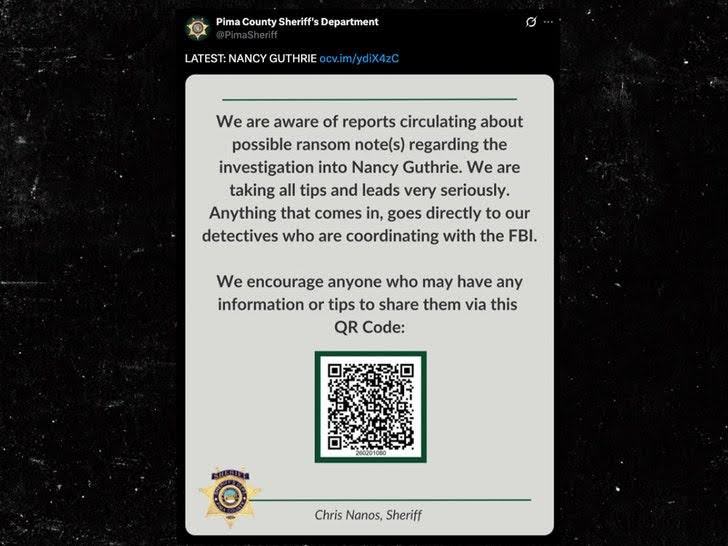2018-8-9 11:38 |
Amir Taaki is an ambitious hacker, coder and philosopher to say the least. He is infamously known as the bitcoin developer, and was also part of the teams that created Darkleaks, Dark Wallet and OpenBazaar.
Recently, Taaki went on stage in a hackathon event he hosted during the Privacy Enhancing Technologies Symposium (PETS). This event took place last week in Barcelona, Spain, the same city that the developer wants to establish his academy of hackers, philosophers and coders, that is set to be called Autonomous Polytechnics.
Taaki had initially sought to build this academy in Greece, that is about 1800 miles from Barcelona, but changed his mind. However, with such a toolset that is focused on autonomy and anonymity, it would have been more plausible to identify a location to establish the project in the autonomous community of Catalonia.
It seems though that Taaki has made up his mind as he did not take much time mulling of his decision and is already sketching on a dirty whiteboard his political vision of his grand idea.
During a presentation, the developer described using a series of diagrams the evolution of biological systems, structures that make up societies and explained how technology can have an impact on such systems that would encourage trends of monopolization or atomization.
He went ahead to connect atomization to the UNIX philosophy. This is a coder theory that supports modular and minimal units of software. It is with this theory that Taaki showed the intended product that his academy is set to develop.
Despite using examples of loose mathematical sequences, the participants could figure out that the scripts and the formulas used were part of an entirely dark machinery. This approach, according to one participant is a kind of subterranean web 3.0, that will probably anonymize the world.
Taaki told CoinDesk that there is a limitation of ideas in this particular area, and insisted that the examples on the whiteboard not be published fearing that they would be taken over. It was evident that the idea he has will certainly revolutionize the world and is exactly what he intends to achieve.
Taaki left the bitcoin development team and joined a Kurdish militia that was fighting in Rojava, which is an autonomous region in Syria. This region is guided by the political theory that supports small governing communities called democratic confederalism. It is this political theory that he wants to spread using technology.
Taaki told CoinDesk that every movement must have a technological arm, and that he and his team wear that arm in their quest to spread their political theory.
Combining Politics And TechnologyIn order to achieve his ambition, Taaki has proposed that those attending his academy undergo strict and disciplined training. All new comers will have to go through to a three-month induction period, repeating the same process after every six months to twelve, or annually.
According to CoinDesk, Taaki says that such training is important as it will mold the members of the movement as leaders in addition to developing their technical skills, and will also impact them with social skills that will enable them to manage and organize other human beings to be able to coordinate and work as a tight unit.
Taaki does not dismiss the fact that there will be room for ideological diversity in this academy. He even has an idea of establishing several tiers of participation as well as a system of allied academies around the world. He, however states categorically that those attendees forming part of the core or the central unit must follow strict timetables and will have to let go of any other engagements and immerse themselves entirely into this business to see this project become a success.
Taaki in his statement reiterated that the people can lift themselves higher, learn from one another and purpose to work together as a unit to achieve a greater good thus becoming stronger. This movement thus calls for sacrifice to let go of some little comforts and freedoms in life, so as to get an even bigger freedom and autonomy.
Taaki’s personal life reflects his political and social ideas. He lives quite a rigid lifestyle in which he checks on his diets, lift weights and keeps away from alcohol and weed. He openly, with his occasional snide remarks detests those who live what he calls “Lazy hacker culture” kind of life. He categorically told CoinDesk that there is no way you can live a party life and still expect to be part of a revolution. He says that partying and revolution are mutually incompatible.
Taaki fears for bitcoin and the entire cryptocurrency community that it could end up with parting jokers. He says that despite this industry attracting some of the best minds in the world, if there is no control to guide it, it might end up being just a simple play.
He says that there is this danger facing bitcoin in which instead of being the social transformative tool that its developers intended it to be, it might end up into just another exclusive social club. Bitcoin according to him has the potential to liberate humanity, but as it seems, it might end up being a nice subculture in which a few people meet occasionally, a few tech savvy people make some investment here and there and just ends that way.
It is for this reason that he wants those willing to join his cause to have a serious drive. He wants those joining his movement to be driven by the theories of democratic confederalism evident in the Rojava movement and a particular theory of technology as espoused by Lewis Mumford, an American philosopher.
The core principle of democratic confederalism is self-governance. The idea also supports feminism and environmentalism.
According to Mumford, the American philosopher, the technological process is categorized into two; monotechnics and polytechnics. In monotechnics, the system creates a global, top-down, single-purpose technologies, whereas in polytechnics, technology is equally widespread to various social and political contexts giving the people the power. It is this particular model that Taaki advocates for and believes can change the world.
Taaki told CoinDesk that his movement believes in creating a technology on a human scale in which people can use in different contexts to solve everyday problems.
Exhausted IdeasIn addition to his fears that bitcoin might become just another fan fare like most cryptocurrencies, he firmly believes that what is missing from the equation is the idea of polytechnics. According to him, the failure of bitcoin and other cryptos emanated from the believe that technology alone was enough to initiate a global restructuring of political, social and economic power simply by incorporating it into the system.
Taaki, according to CoinDesk, asserts that people had this misconception that bitcoin would emerge as big inevitability. He compares it to the honey badger in which people claimed that the honey badger was unstoppable. There is according to Taaki a sense of a linear historical trajectory or a that of inevitability that prevents people from seeing the bigger picture.
He continues saying that even though bitcoin had a good vision, it has failed due to the bitcoin community inability to incorporate the political ideas within the technology and adopt the ideas to continuously change the existing political dynamics and the system as a whole.
He asserts that technology is that tool that we use to shape the society, but it is humans who must make a conceited effort to drive forward the technology. He maintains that technologies are rather useless without the people having a guiding ideological purpose. He adds that the challenges ailing bitcoin are to a larger extent social and economic problems than they are technological.
These problems he says comes from what he calls an “engineering mindset.” Taaki says that there is a particular group of elite individuals within the bitcoin community who view the world in a very technical manner. It is this viewpoint that is extremely limiting.
Taaki gives an example of the lightning network, a technical solution to the scalability problem that has, however, failed to solve the wider societal issue of mass adoption of the cryptocurrencies. He points out that while the crypto community haven’t been able to use this technology to their advantage, banks and corporations have adopted the same to create better and more usable products thus beating the crypto community to their own game.
Taaki warns that if the crypto community does not take deliberate actions to fundamentally change the order of things, the idea might end up into oblivion. He is, therefore, on his part trying to work towards changing and preventing such an end with his Autonomous Polytechnics idea.
Sources Of FundsTaaki and his followers in his movement are at the moment living at the home of Cooperativa Integral Catalana, a Catalonian historical residence and a community that has also established its own digital coin called FairCoin.
Taaki, however, already has plans for his academy. This academy will be situated at the base of Carmel Hill. Stretching across about 8,600 square feet, the academy will have a shared workspace, a garden, some living quarters and a basement to hold, conferences, hackathons among other events.
Taaki has gone an extra mile to design the academy’s flag which will have the colors of his organization. These colors are green and black, with a shining sun set at the center indicating technology. It is such bold moves that has attracted a lot of participants to this movement, some of who are squatting with Taaki. They are only waiting to have all the plans laid out properly to start the process.
Taaki said to CoinDesk that they have been patient for a year now, and are still waiting to start the academy. It is the slow construction of the academy stemming from the lack of adequate funding that is slowing them down.
Taaki’s project needs just about $10,000 to $20,000. This money is very little as compared to that being raised by some Initial Coin Offerings (ICOs), some of which are suspicious. It has been difficult to raise such funds as most investors are not willing to contribute to a cause that they are not sure of getting some returns.
Taaki’s program though, isn’t a business per se. It is an institution that seeks to create free technology. Its business arm is merely a system of channeling any excess profits towards the support and promotion of the academy’s guiding principle which is democratic confederalism all over the world.
Taaki said that they are trying to get funding from other sources to get going which has not been easy. He notes, contrary to popular rhetoric, a lot of participants in the crypto community are very stingy.
Currently, this project is receiving donations from Cody Wilson, who was the co-developer of Dark Wallet and also is infamously known for designing the 3D printable Liberator pistol.
Taaki looks forward to finding other alternative sources of funding to run the program but none seem to be in the offing at the moment. He is, however, optimistic.
origin »Bitcoin price in Telegram @btc_price_every_hour
Bitcoin (BTC) íà Currencies.ru
|
|



